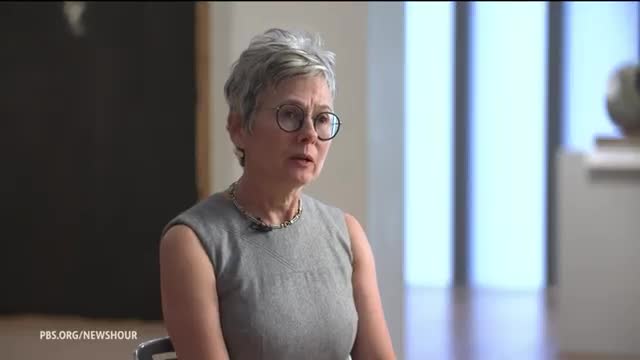Art Museums Transform into Voting Hubs to Engage Students
This article was created by AI summarizing key points discussed. AI makes mistakes, so for full details and context, please refer to the video of the full meeting. Please report any errors so we can fix them. Report an error »

In a recent government meeting, discussions centered on the intersection of art, civic engagement, and democracy, particularly in the context of heightened political polarization in the United States. The meeting highlighted a large-scale, nonpartisan initiative involving university museums across the Big Ten, aimed at fostering voter participation and engagement among students.
Professors Stephanie Rowden and Hannah Smotrich from the School of Art and Design introduced the Creative Campus Voting Project, which has transformed a museum space in Ann Arbor into a voting hub. This initiative addresses the gap between voter registration and participation rates among students, tackling both logistical and psychological barriers to voting. The museum environment is designed to be welcoming, encouraging students to register and cast their votes in a space that promotes comfort and engagement.
The project has garnered participation from several other universities, including the University of Wisconsin Madison and Rutgers, which are also serving as registration and voting centers. These institutions are hosting exhibitions that explore themes of democracy and civic engagement, such as Penn State's focus on patriotism and injustice, and Michigan State's project on gender representation.
A notable exhibition in Ann Arbor, titled \"Hey, We Need to Talk,\" aims to facilitate dialogue across political divides. Artist Philip Affam Hughes has created a space for conversations, emphasizing the importance of dialogue in a functioning democracy. Participants have reported engaging discussions that transcend typical political debates, reflecting a desire for understanding and connection.
Museum director Christina Olson underscored the critical role of public institutions like museums in promoting civic engagement and supporting democracy. She emphasized the importance of recognizing and protecting these spaces, which contribute significantly to civil society, even if their impact often goes unnoticed.
This initiative represents a creative approach to addressing the challenges of political discourse and voter engagement, leveraging the power of art and community to foster a more inclusive democratic process.
Professors Stephanie Rowden and Hannah Smotrich from the School of Art and Design introduced the Creative Campus Voting Project, which has transformed a museum space in Ann Arbor into a voting hub. This initiative addresses the gap between voter registration and participation rates among students, tackling both logistical and psychological barriers to voting. The museum environment is designed to be welcoming, encouraging students to register and cast their votes in a space that promotes comfort and engagement.
The project has garnered participation from several other universities, including the University of Wisconsin Madison and Rutgers, which are also serving as registration and voting centers. These institutions are hosting exhibitions that explore themes of democracy and civic engagement, such as Penn State's focus on patriotism and injustice, and Michigan State's project on gender representation.
A notable exhibition in Ann Arbor, titled \"Hey, We Need to Talk,\" aims to facilitate dialogue across political divides. Artist Philip Affam Hughes has created a space for conversations, emphasizing the importance of dialogue in a functioning democracy. Participants have reported engaging discussions that transcend typical political debates, reflecting a desire for understanding and connection.
Museum director Christina Olson underscored the critical role of public institutions like museums in promoting civic engagement and supporting democracy. She emphasized the importance of recognizing and protecting these spaces, which contribute significantly to civil society, even if their impact often goes unnoticed.
This initiative represents a creative approach to addressing the challenges of political discourse and voter engagement, leveraging the power of art and community to foster a more inclusive democratic process.
Don't Miss a Word: See the Full Meeting!
Go beyond summaries. Unlock every video, transcript, and key insight with a Founder Membership.
✓
Get instant access to full meeting videos
✓
Search and clip any phrase from complete transcripts
✓
Receive AI-powered summaries & custom alerts
✓
Enjoy lifetime, unrestricted access to government data
30-day money-back guarantee
